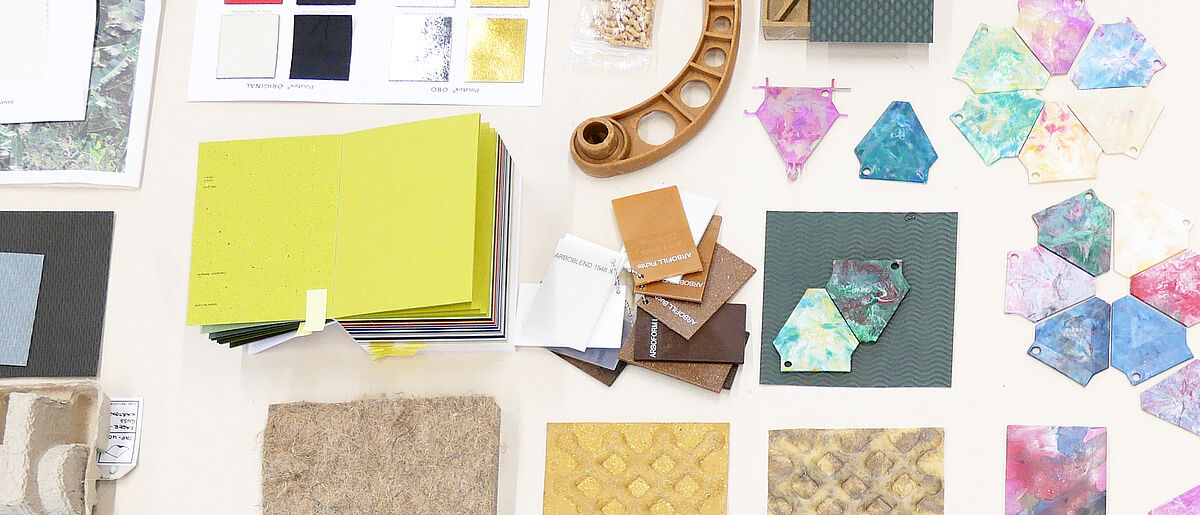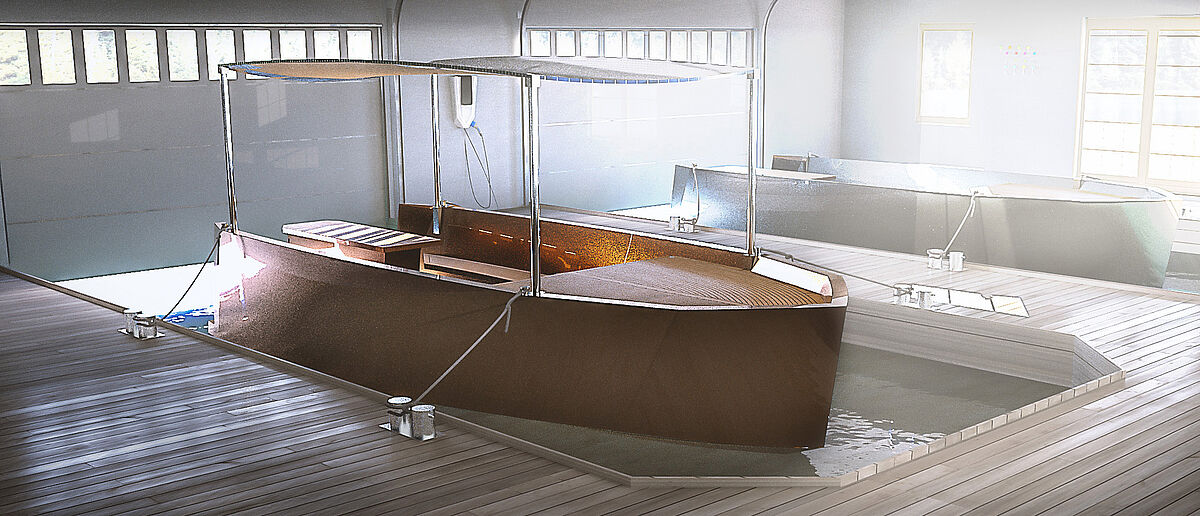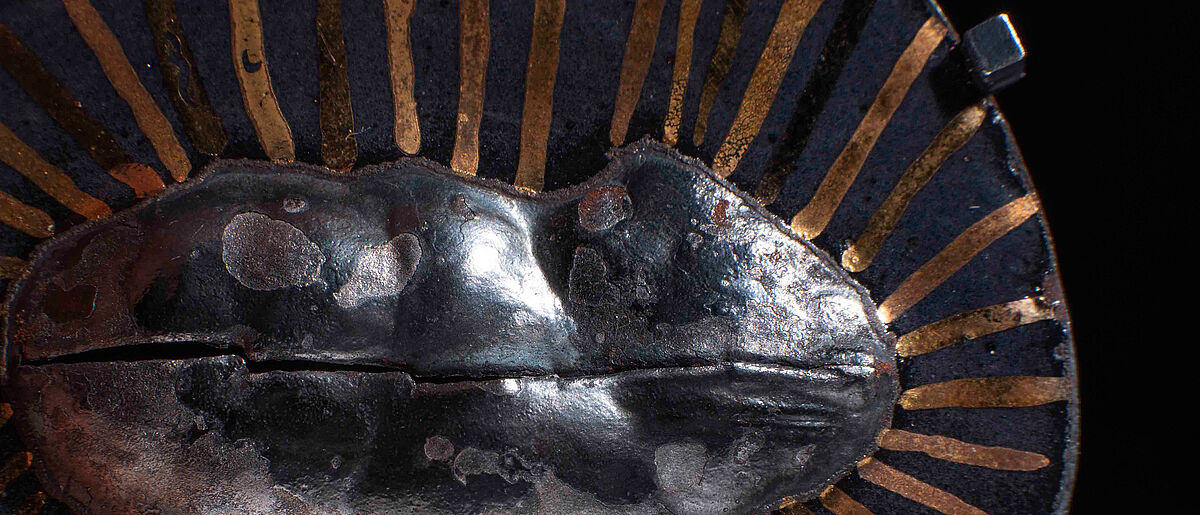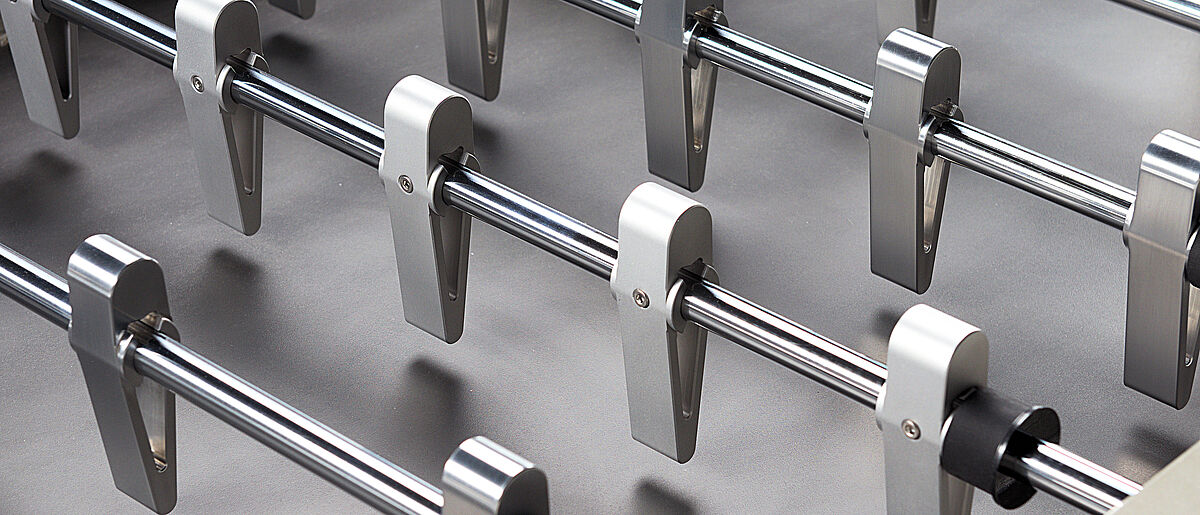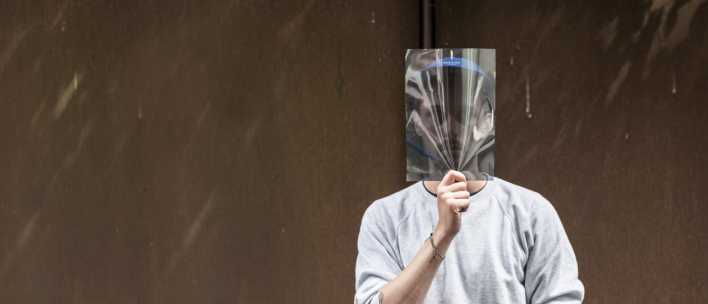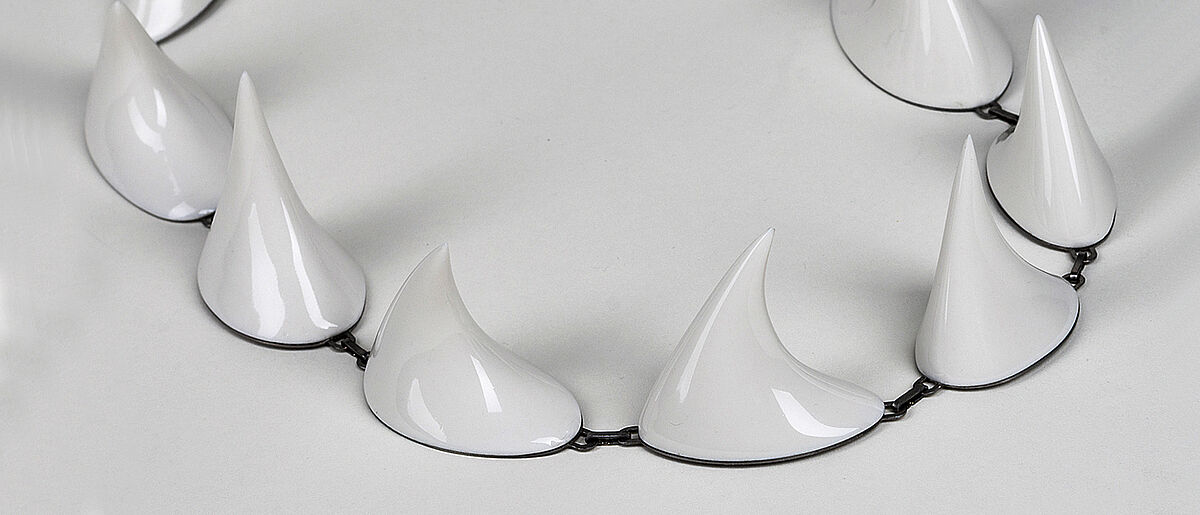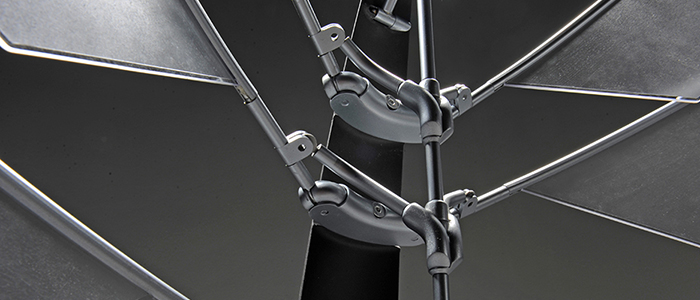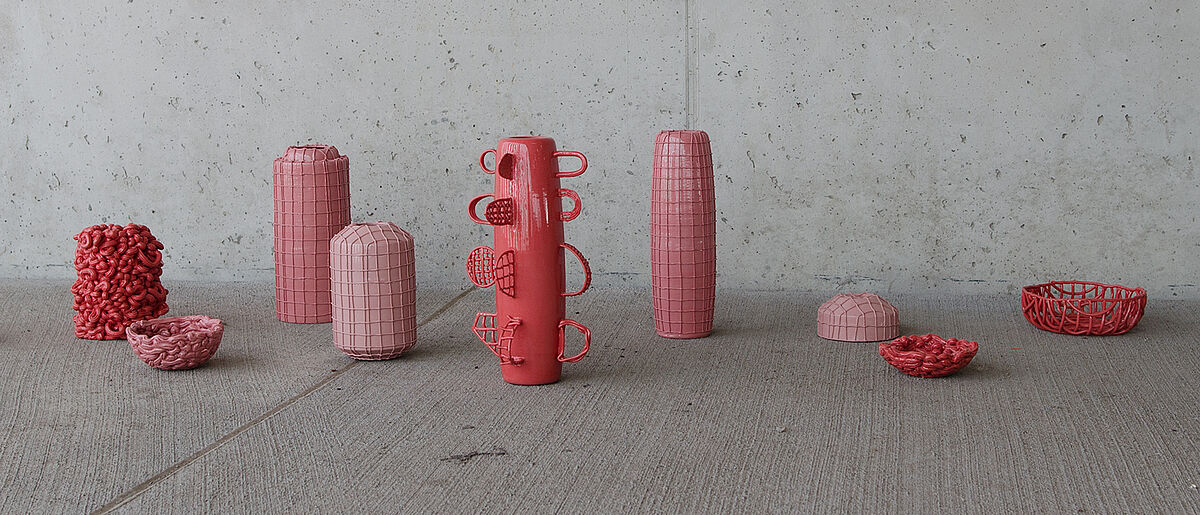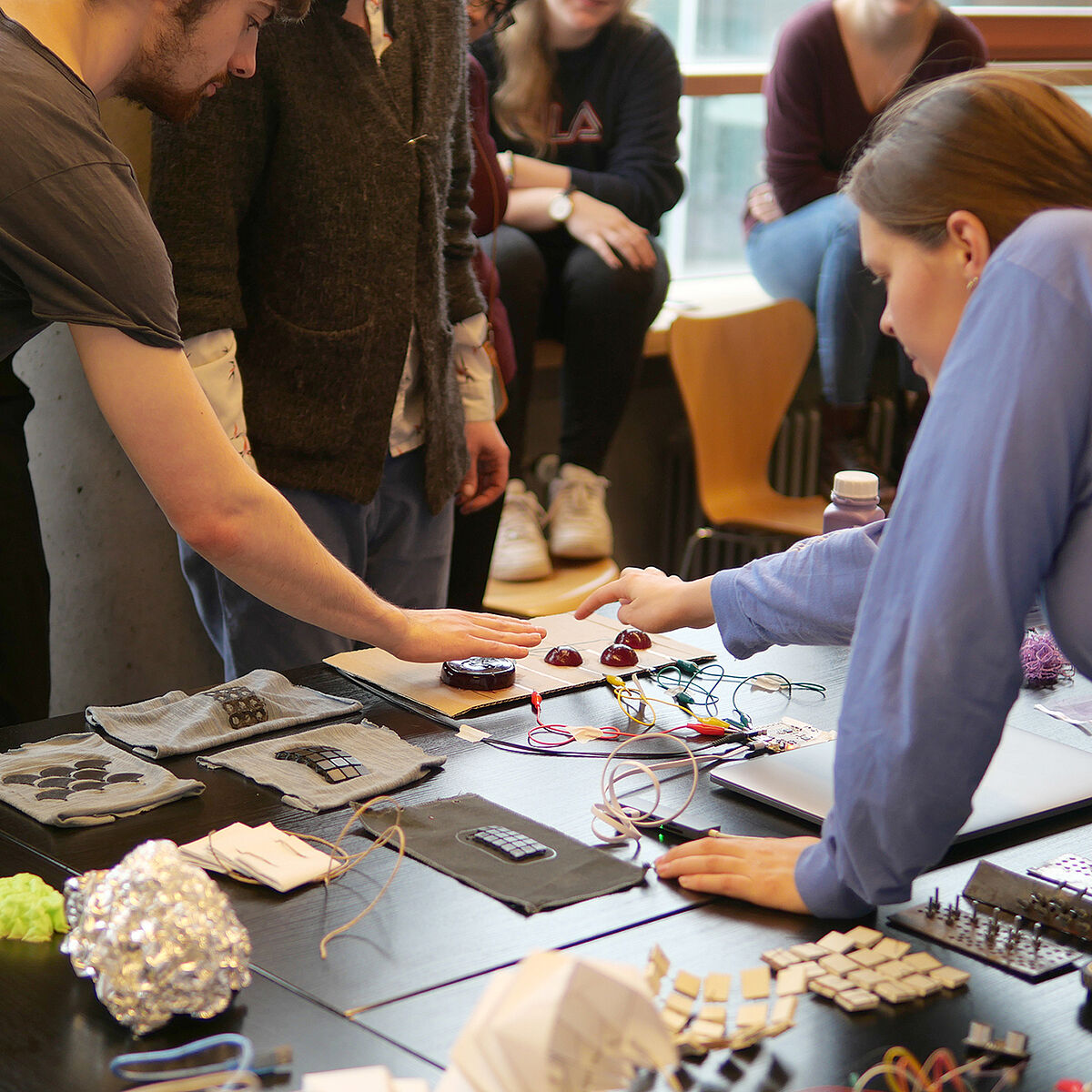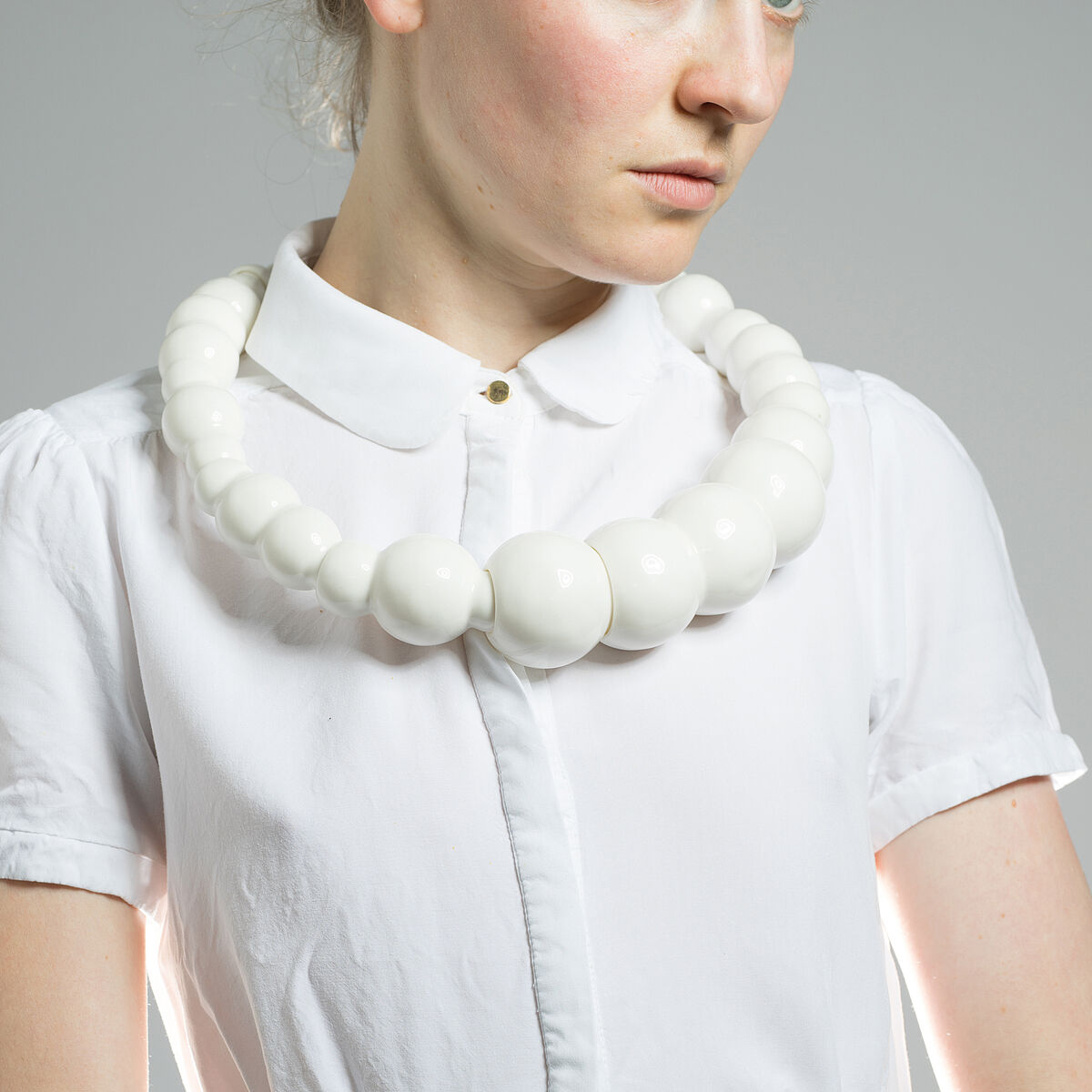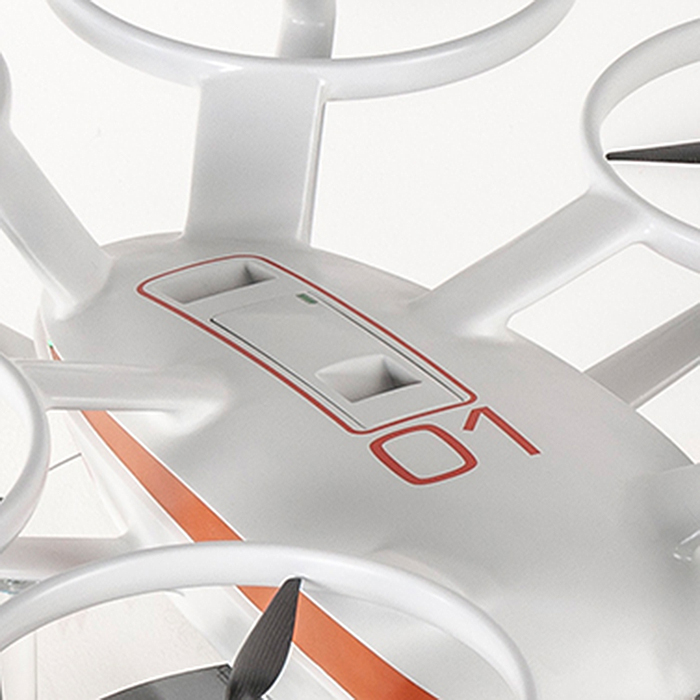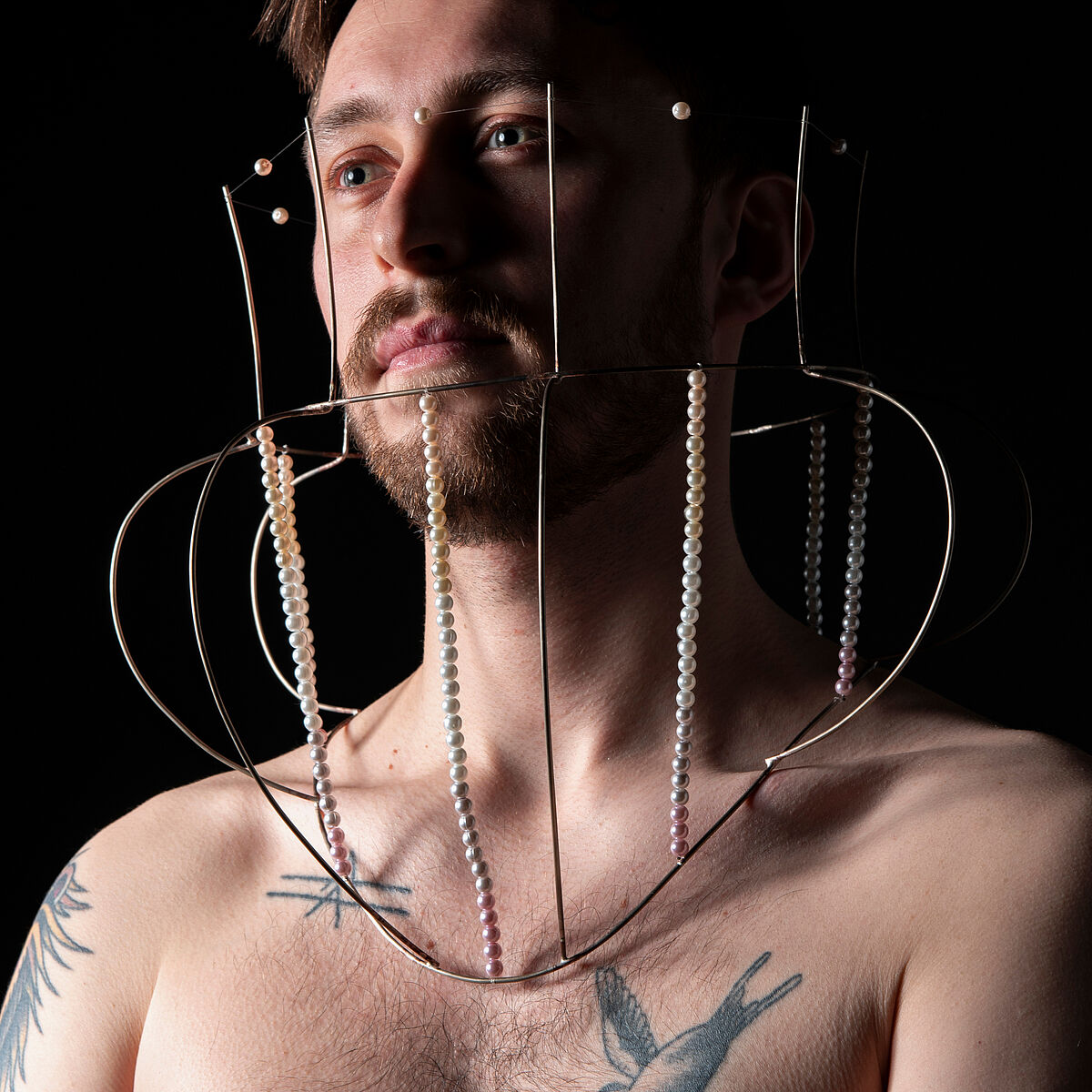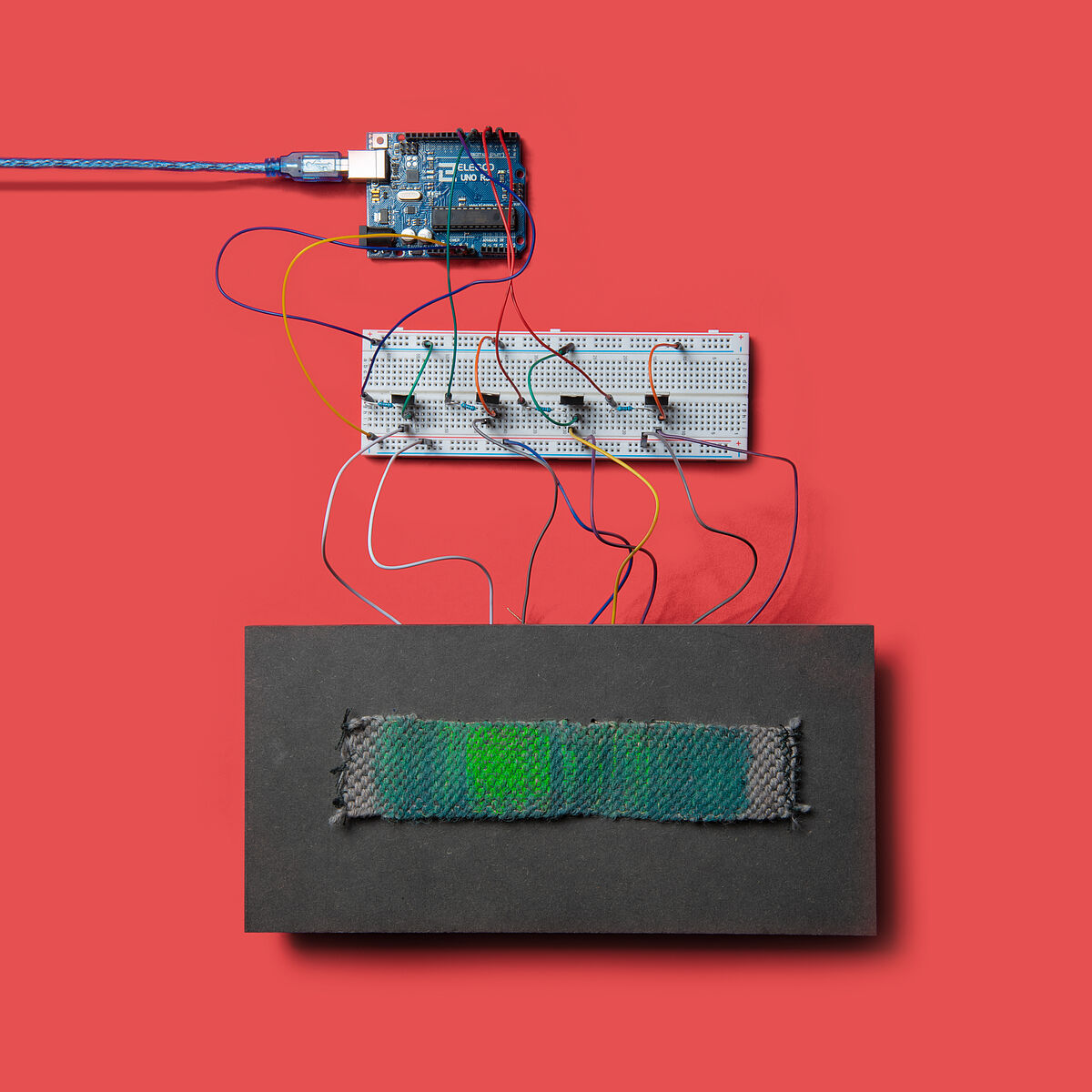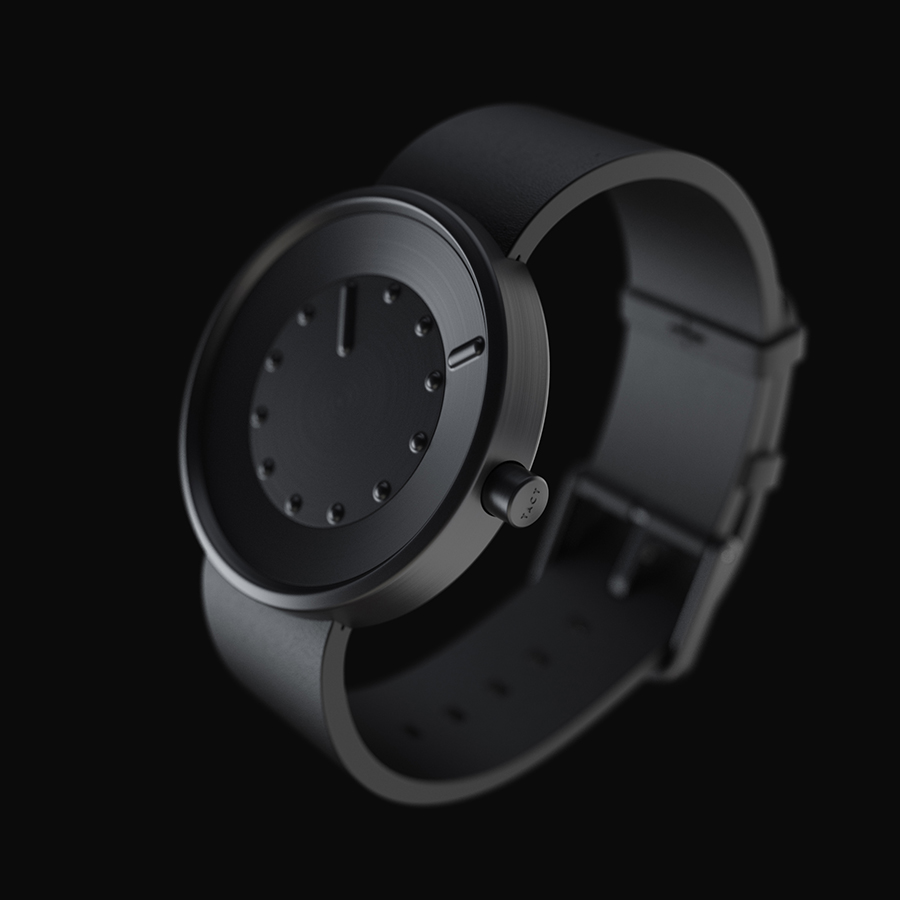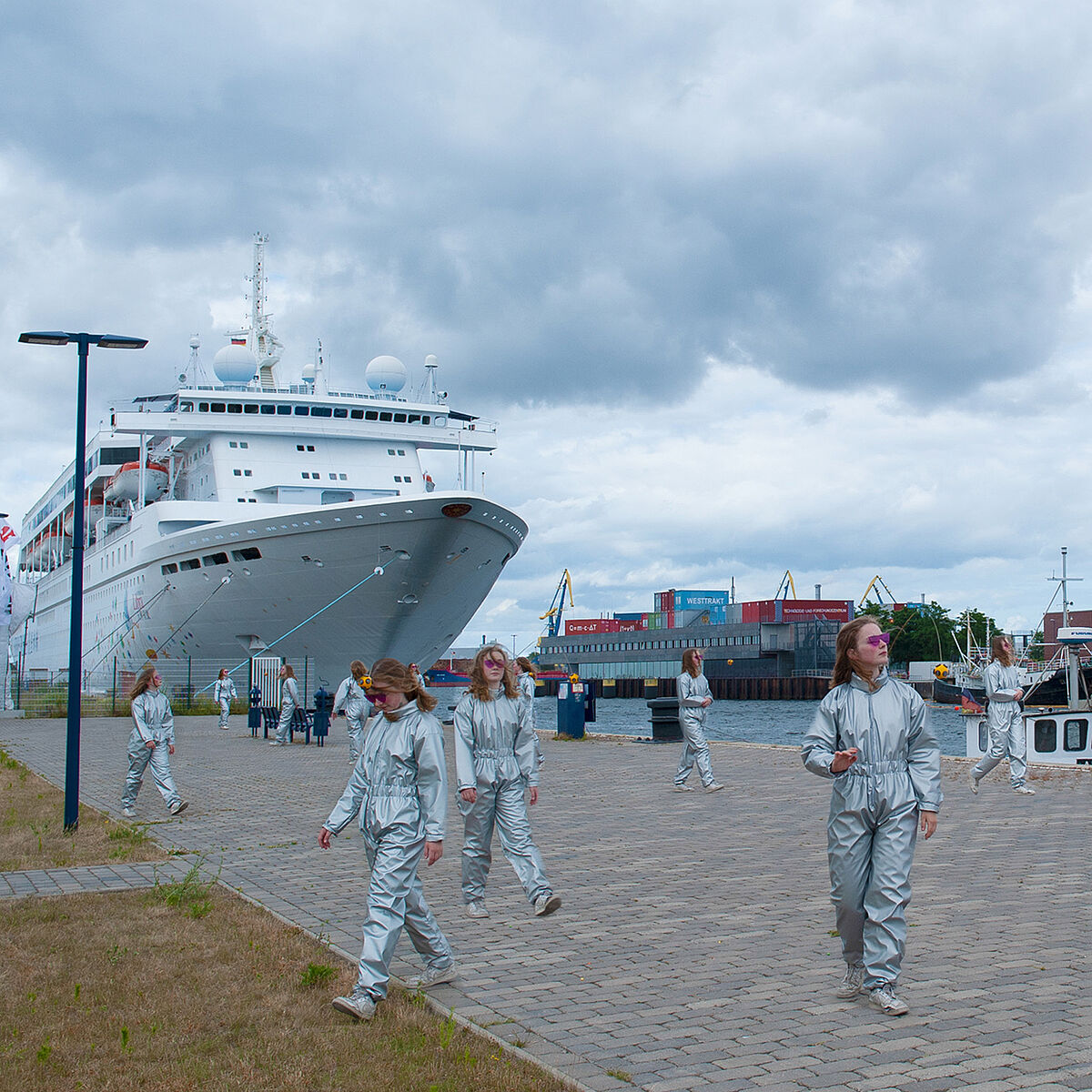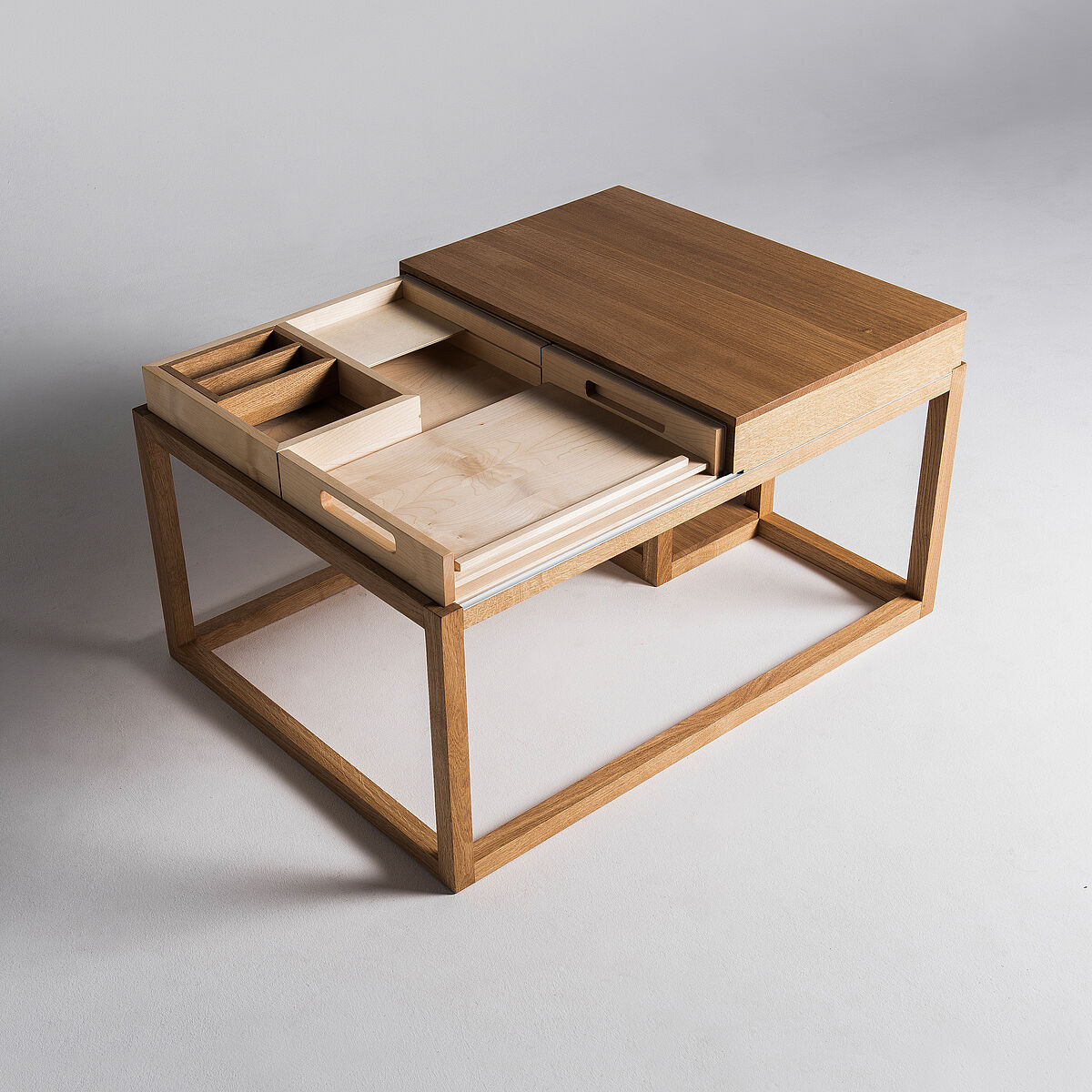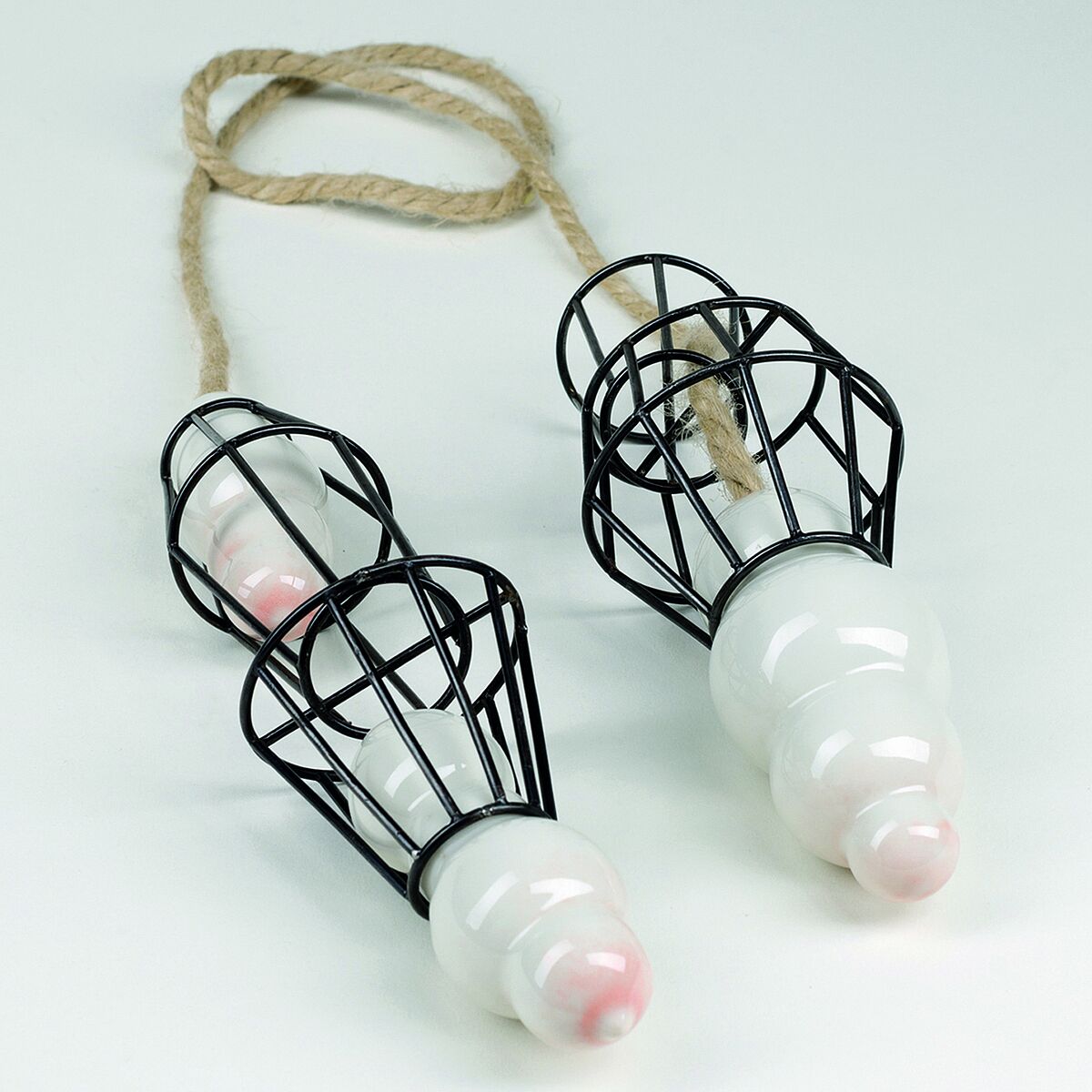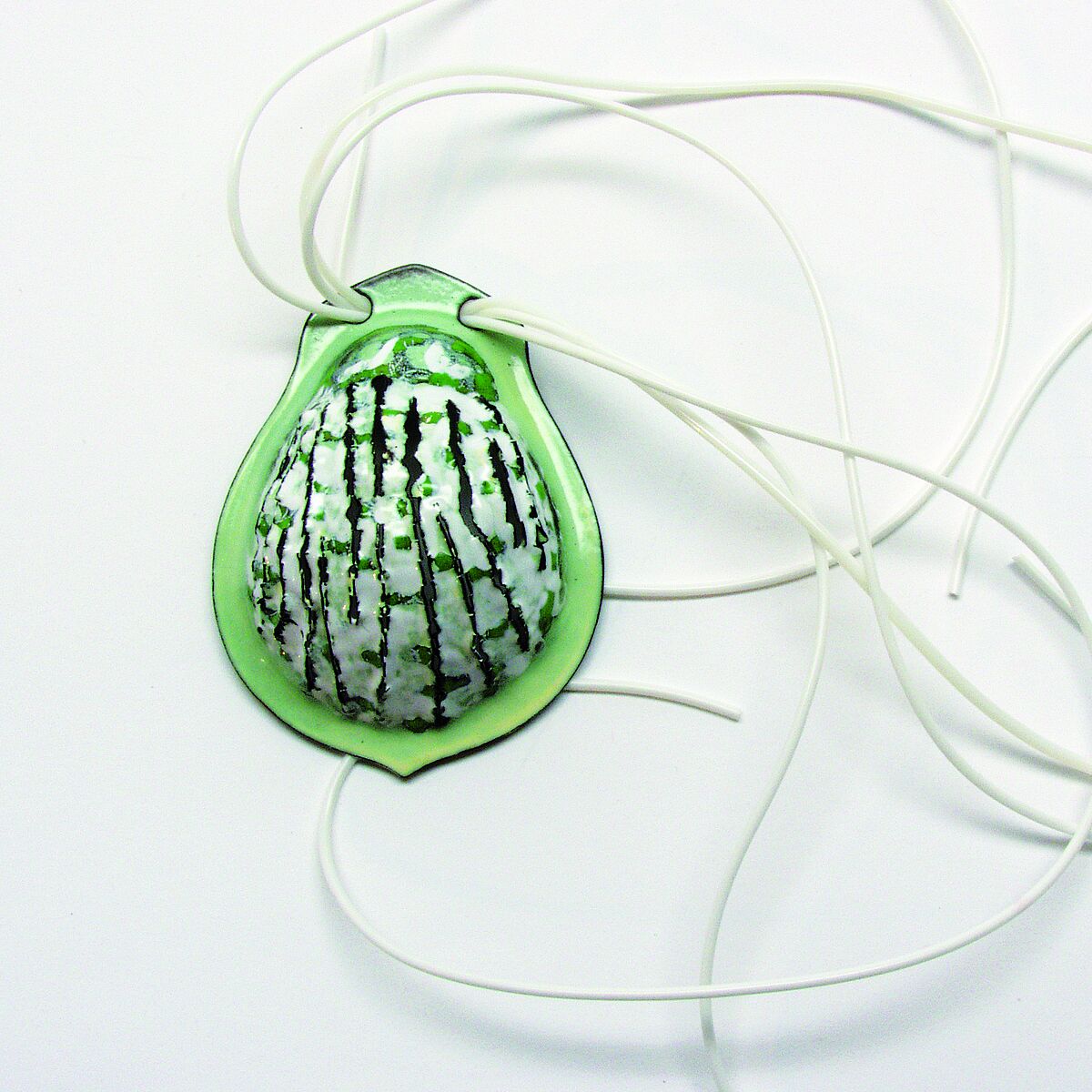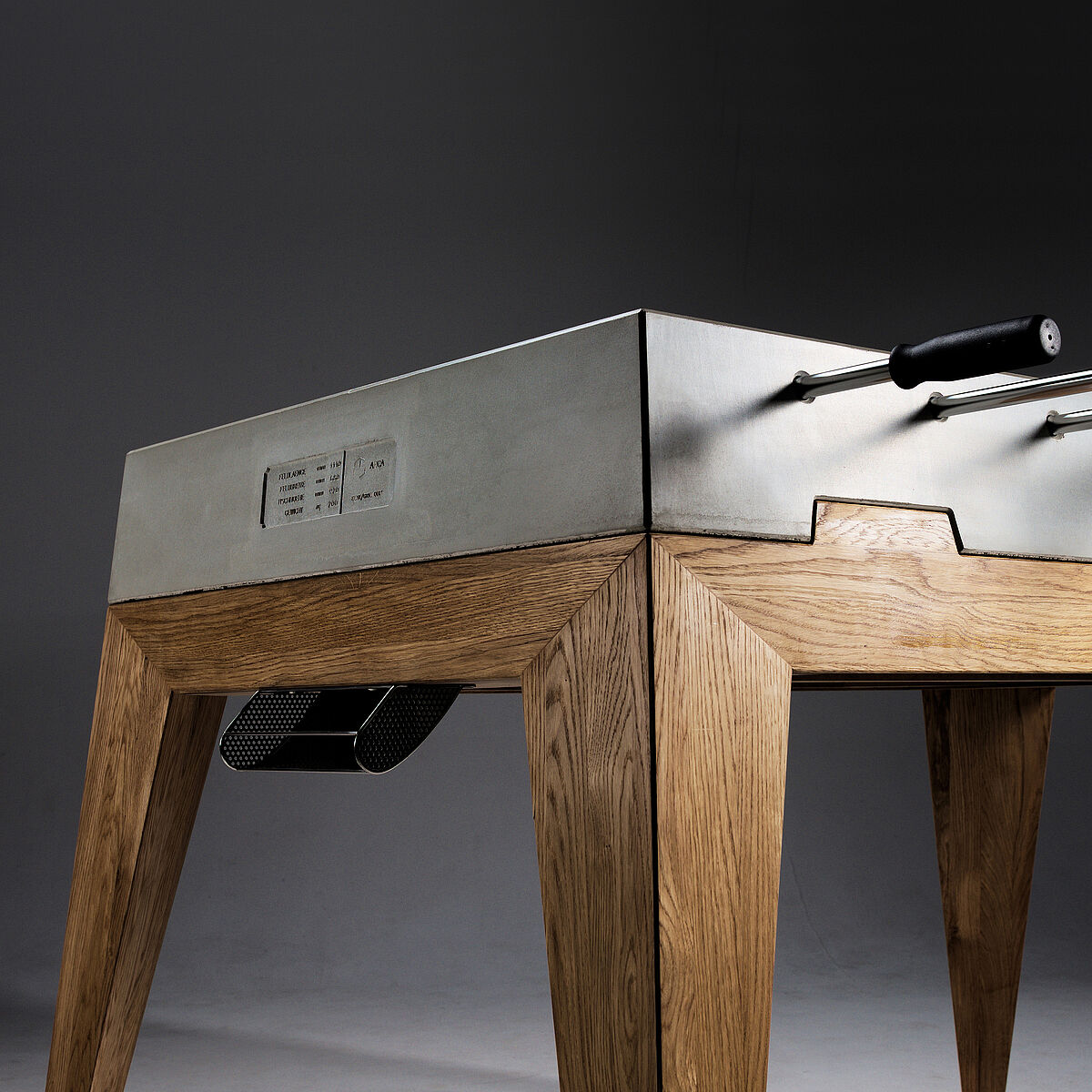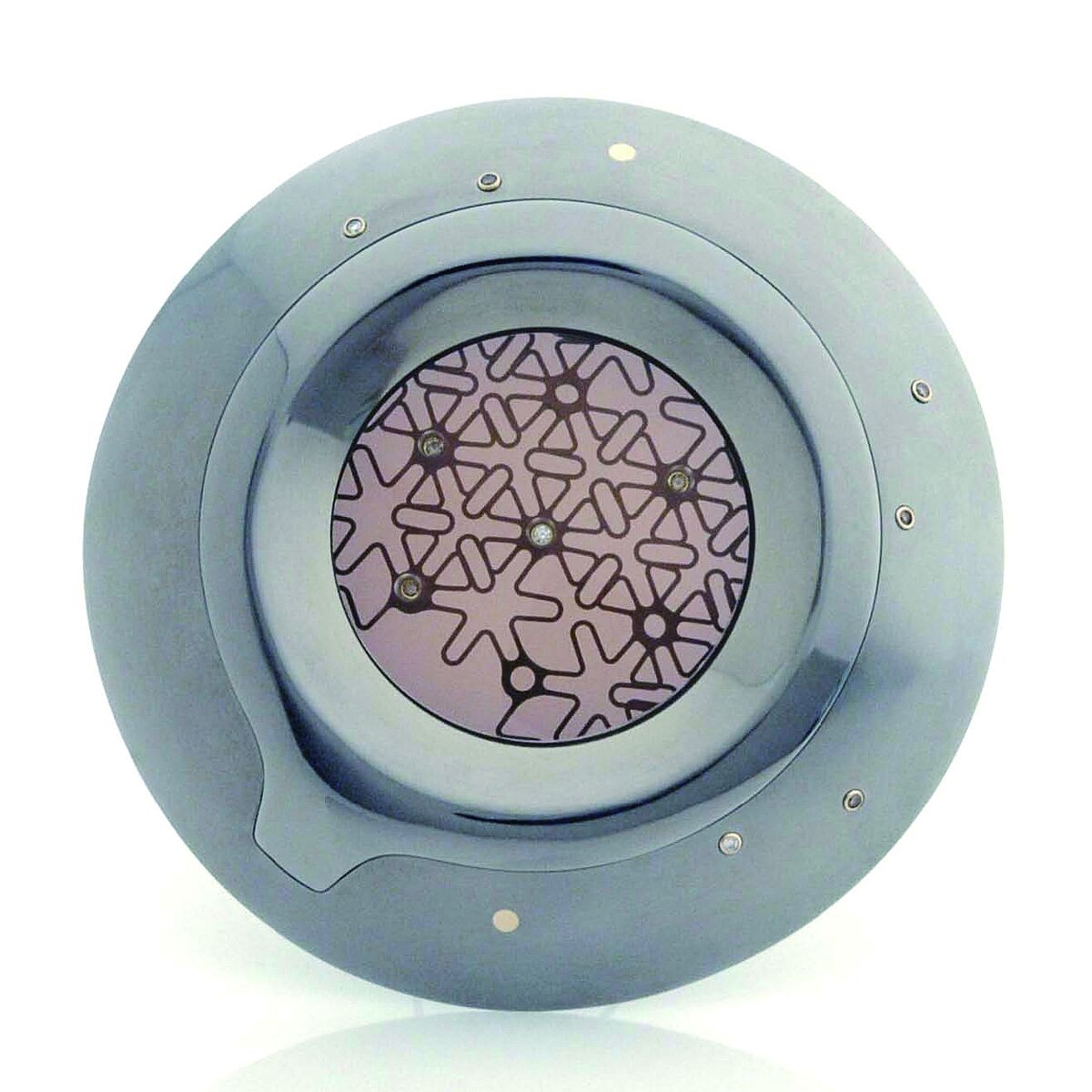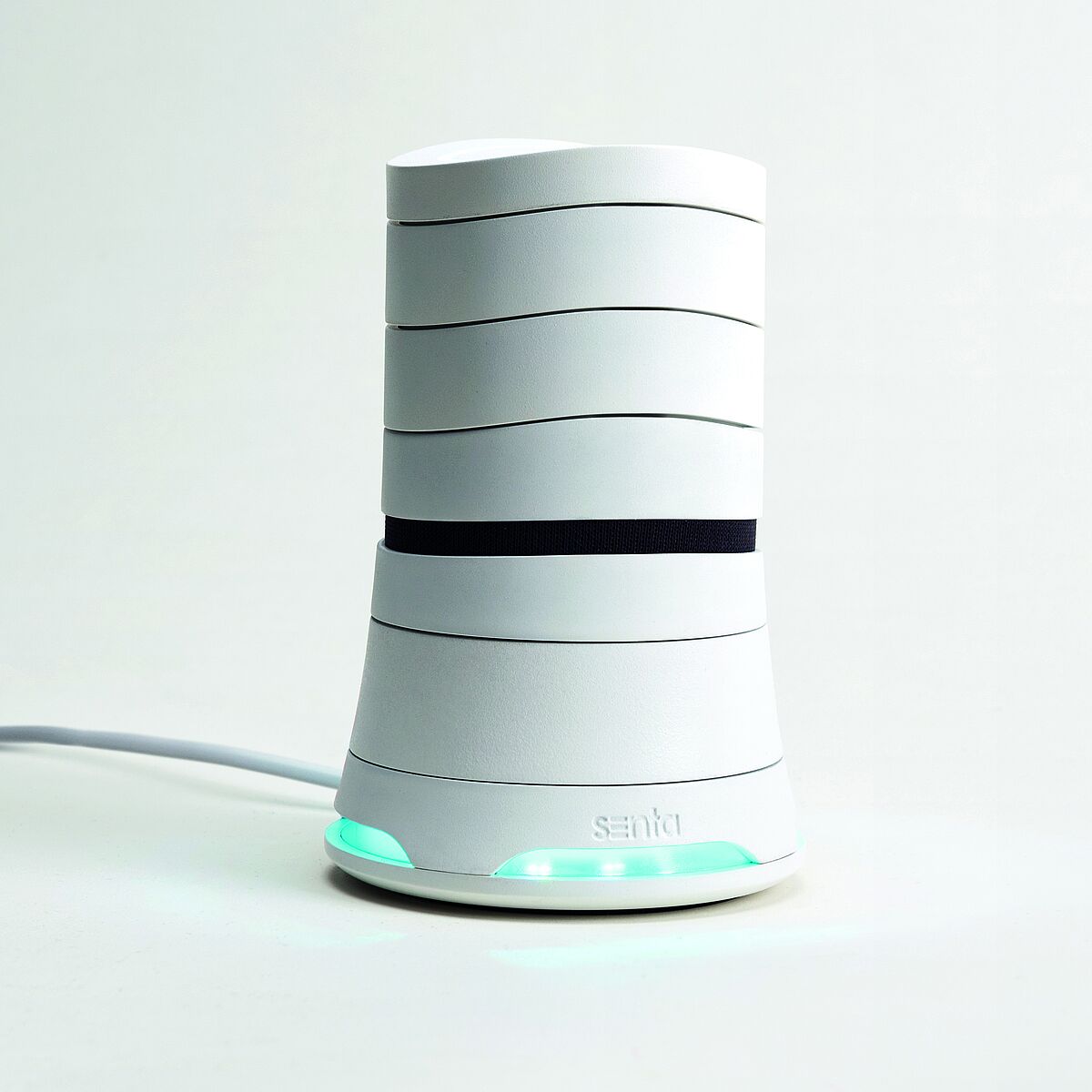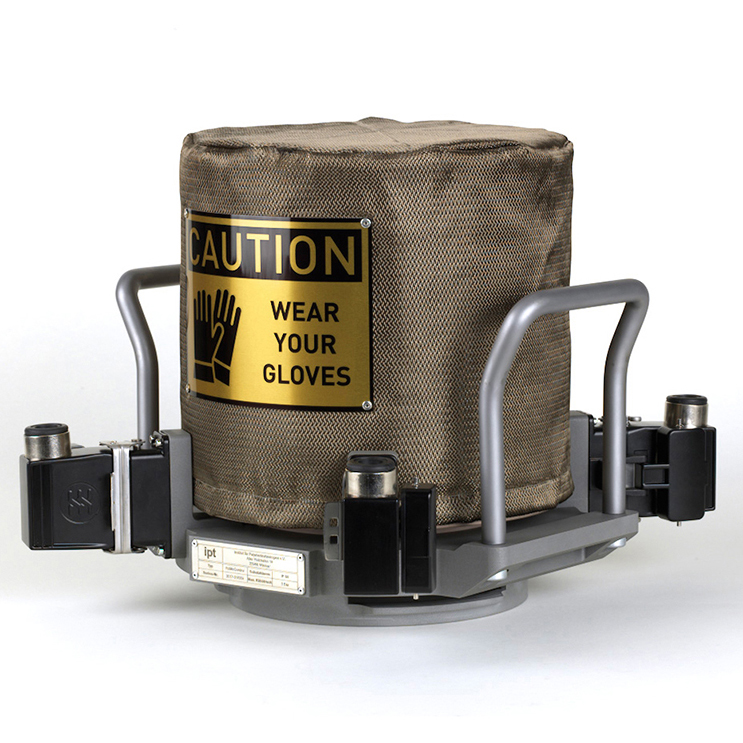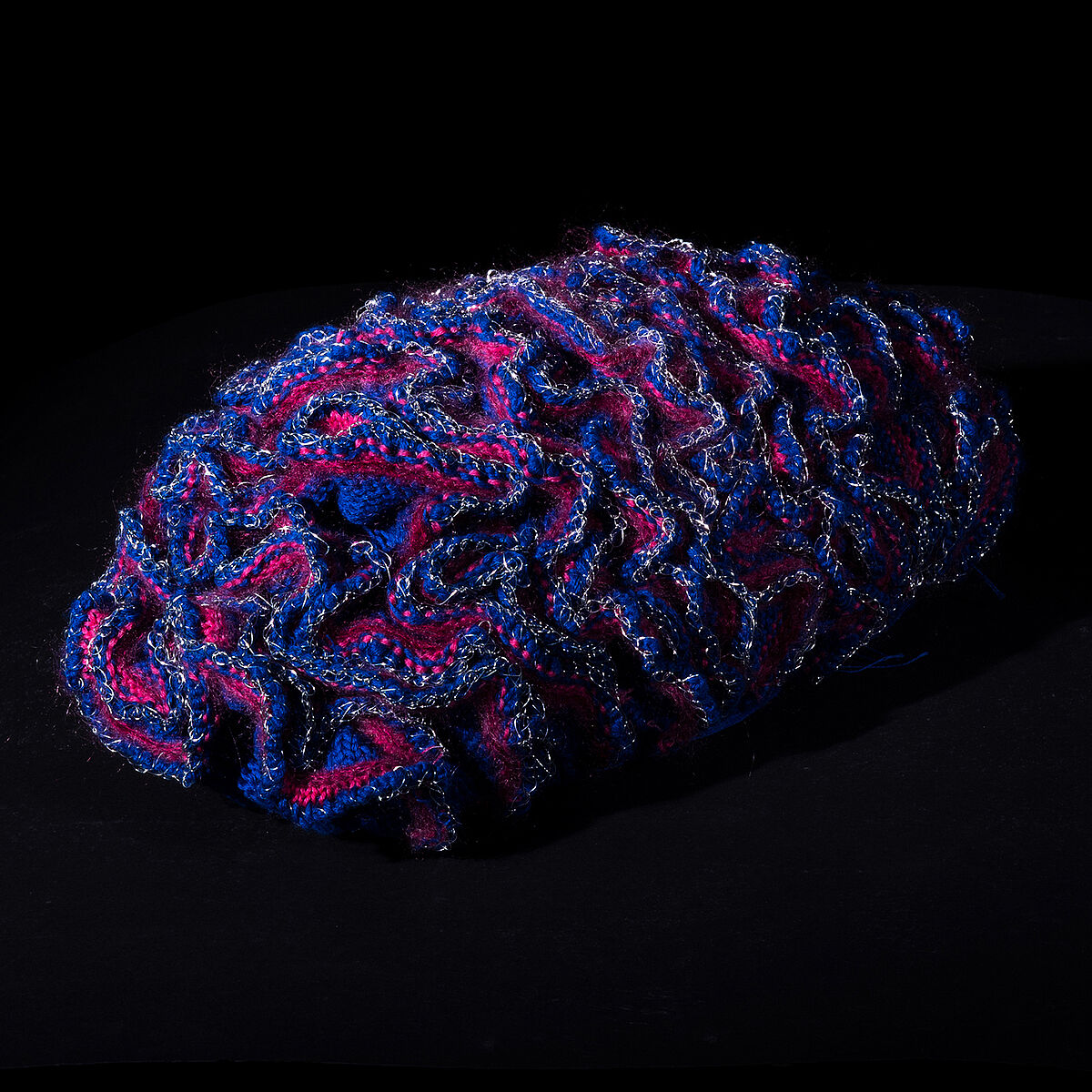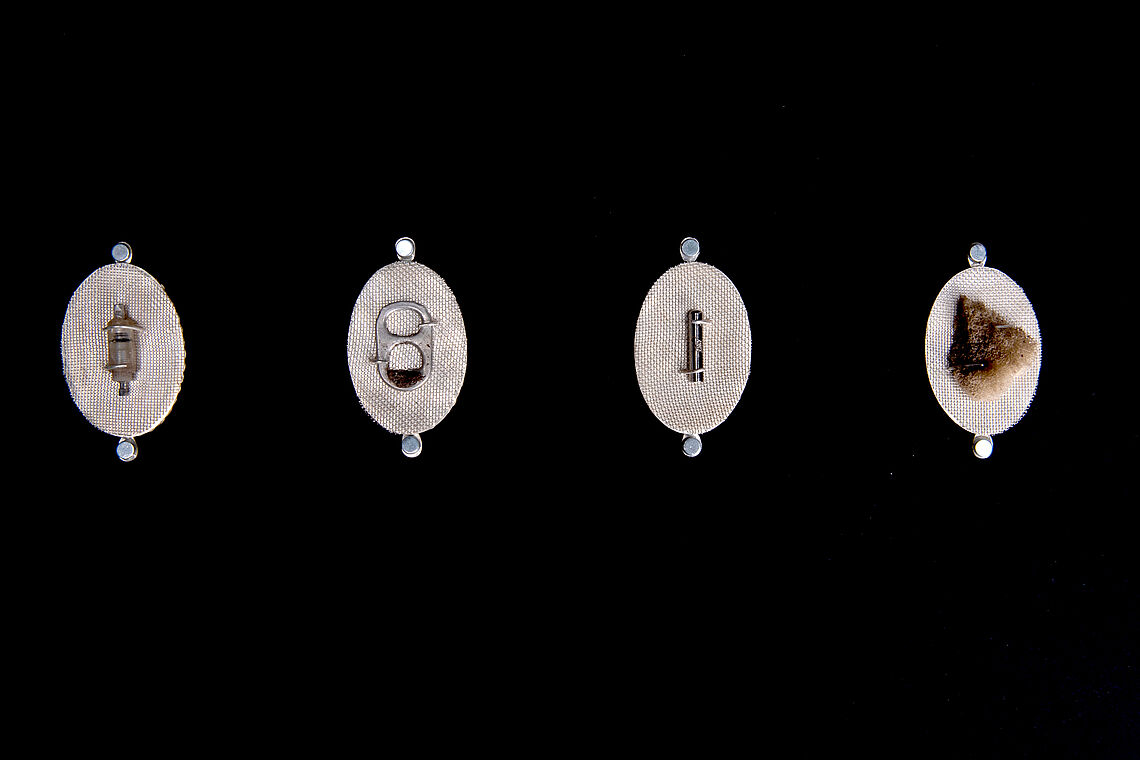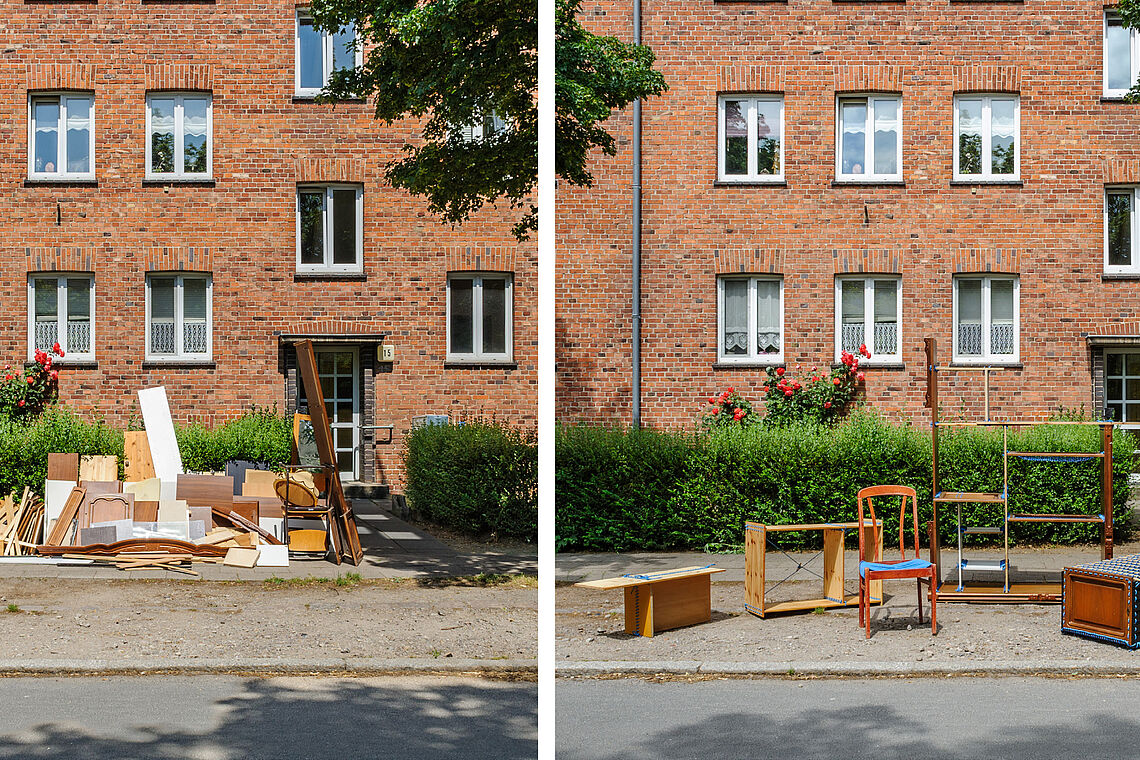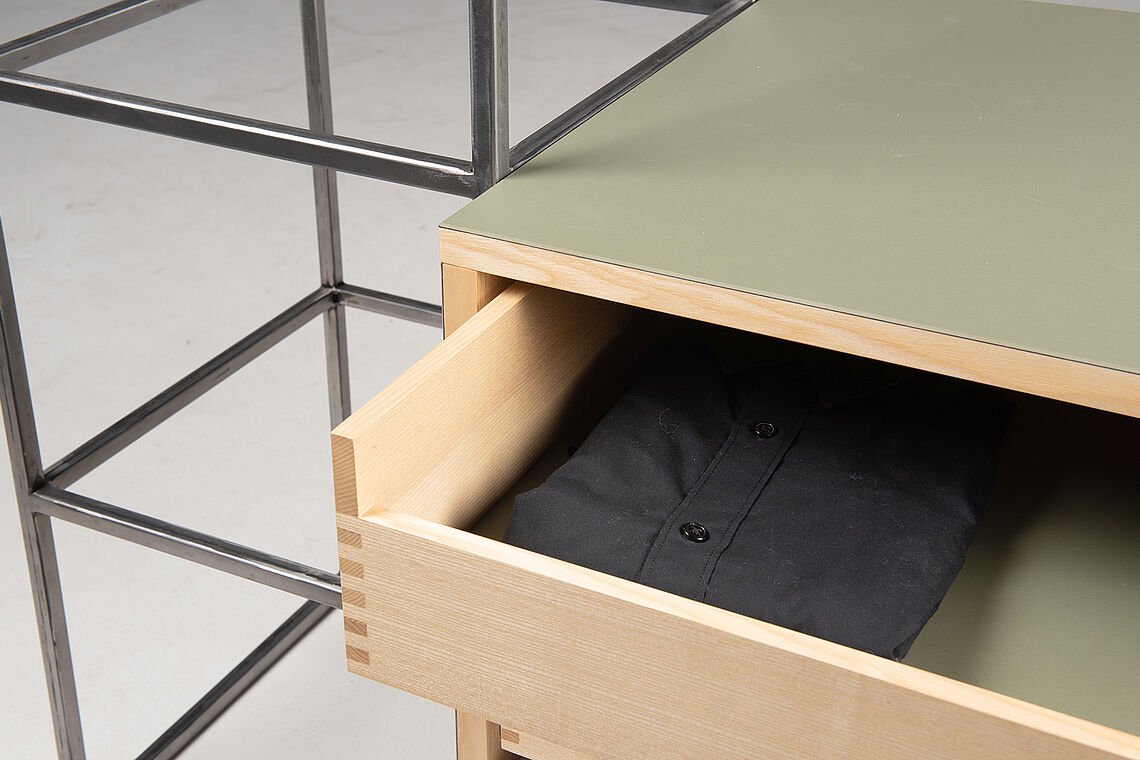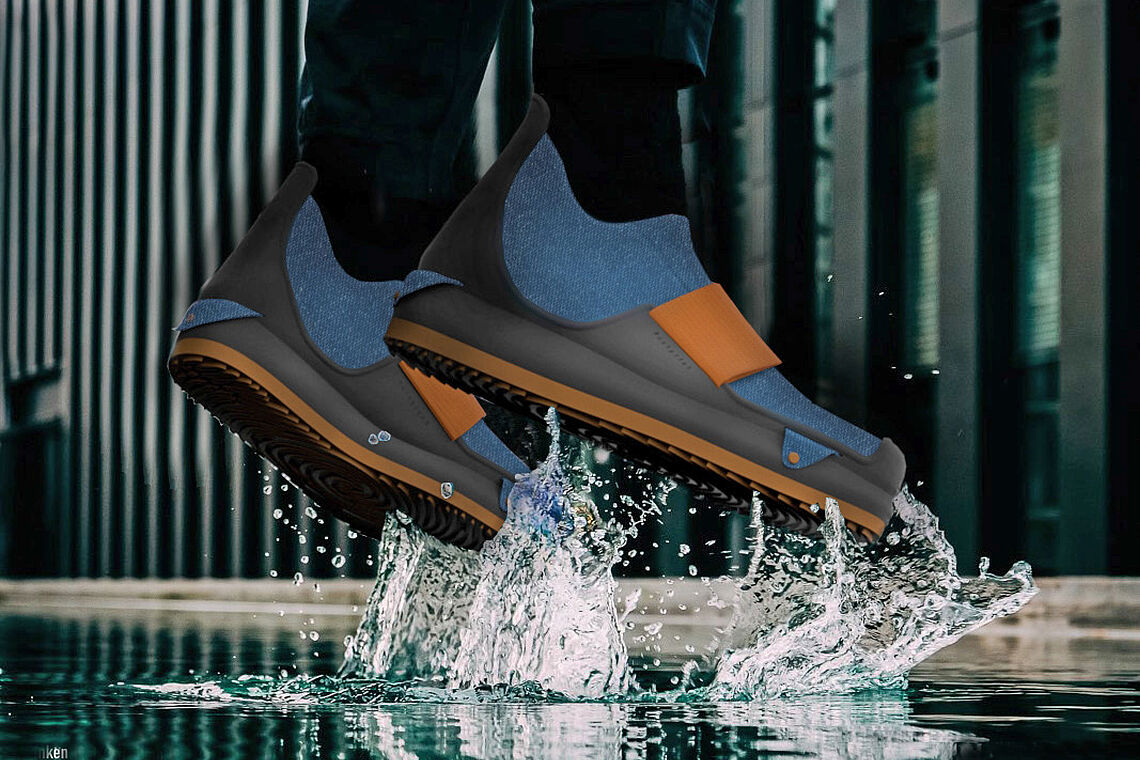Material Culture Design – Master's Degree Course
The advancing development of cutting-edge technology significantly affects our living and working environment. It defines the framework for designing a material culture which is constantly required to actively and sustainably meet the social and ecological challenges on a new level.
Digital technologies, which together with modern manufacturing processes, fundamentally change the nature of physical products, are at the centre of this development. Thus, new materials and control systems create an operational framework, in which context it is advisable to differentially review many successful positions, such as the role of traditional craftsmanship as well as the expectations for successful products. Designers, specialised generalists, who feel competent to perceive the challenges posed by global circumstances and to meet the resulting issues with their own future-oriented concepts, play a significant role in this task.
The curriculum of the master’s degree course Material Culture Design accounts for these aspects in many respects and focusses on a spectrum of specific topics that help students to get acquainted with the realities of designing, and prepare them for the complex connections of technological, ecological, but also strategic, and communicative aspects of their future profession. Numerous modules are on offer which, thanks to the background of engineering, design theory, and artistic-creative competencies,
provide students with a broad range of compulsory elective, interdisciplinary, and transdisciplinary projects, which enable individual study profiles.
The collaboration with the adjacent teaching fields of Hochschule Wismar’s Faculty of Architecture and Design, provides the concept and structure of a study model, which understands the holistic working process of the project topics as a basis of innovative product design. The combination of the technological-oriented product design and the artistic-oriented jewellery design constitutes a unique feature; its topics define the opportunity to merge different design philosophies as a focal point of integrative and interdisciplinary work.
However, this aspect is not the only one that enables a broad range of fascinating topics. Projects which are directed at creating original and plausible approaches to designing innovative product solutions in the areas of tension between high tech and traditional craftsmanship by reflecting on technological and cultural paradigm shifts are paramount; e.g. objects which render the experience of object-mediated actions, the sensual perception of objects, and the enjoyment of everyday life are a subject of student research and design.
Study Counseling
Course Content
The modules of the master's degree course Material Culture Design build upon the skills and knowledge students have learnt during their bachelor’s degree course. Besides the advanced studies’ compulsory elective modules with the specialist fields of product design and jewellery design, the design-related compulsory modules look at general focal points of design. In light of individually chosen topics of advanced studies, students are able to address the specific focal points of interaction design and practical application. The degree course is divided into the following teaching fields:
Design (compulsory module) e.g. practice project, interaction design, and master’s dissertation
Design - advanced studies (compulsory elective modules)e.g. product and narrative, jewellery and identity, and sustainable design strategies
Academia/theory e.g. design theories, business management
Compulsory elective modules at Hochschule Wismar and the Faculty of Architecture and Designe.g. projects in the fields of theory/academia, art/design, depiction, foreign languages.
By successfully completing the master’s dissertation (compulsory module for design), students are awarded the academic degree “Master of Arts” (M.A.).
Career Opportunities
The master's degree course Material Culture Design orientates graduates for positions in interdisciplinary and transdisciplinary fields of design. In particular, it focuses on the jobs of product and jewellery designers. It creates prerequisites for taking on responsible tasks with leadership and coordination roles in design offices and at agencies, companies’ research and design departments as well as creative studios. The degree course focuses on tasks that involve the conception, design, and execution of products based on profound knowledge of material, control and manufacturing technologies. Apart from the opportunity of becoming managers in cultural and educational institutions, museums, publishing houses, and trade fair centres, the degree course’s excellent interface competence grants graduates access to research collaborations and makes it possible for them to pursue careers in the academic world.
Facts
Academic Degree
Master of Arts (M.A.)
Faculty
Design
Campus / Distance learning
Studies on campus
Normal period
3 Semester (bei einem ersten berufsqualifizierenden Studienabschluss mit 210 Credits) 4 Semester (bei einem ersten berufsqualifizierenden Studienabschluss mit 180 Credits)
Start of studies
to winter and summer semester
Place of study
Wismar
Classroom Languages
german
Accreditation
This course has an accreditation
- Voraussetzung für die Teilnahme am Auswahlverfahren ist ein erster berufsqualifizierender Hochschulabschluss (Bachelor, Diplom) in einem Studiengang Design (Produktdesign, Schmuckdesign) einer deutschen oder ausländischen Hochschule in der Regel mit mindestens 210 Leistungspunkten nach dem ECTS.
- Zum Master-Studiengang Material Culture Design wird zugelassen, wer im Auswahlverfahren mindestens 10 Punkte erlangt hat (gem. Zulassungsordnung)
- Kann der Abschluss noch nicht nachgewiesen werden, ist die vorläufige Durchschnittsnote heranzuziehen
- Motivationsschreiben und Portfolio

